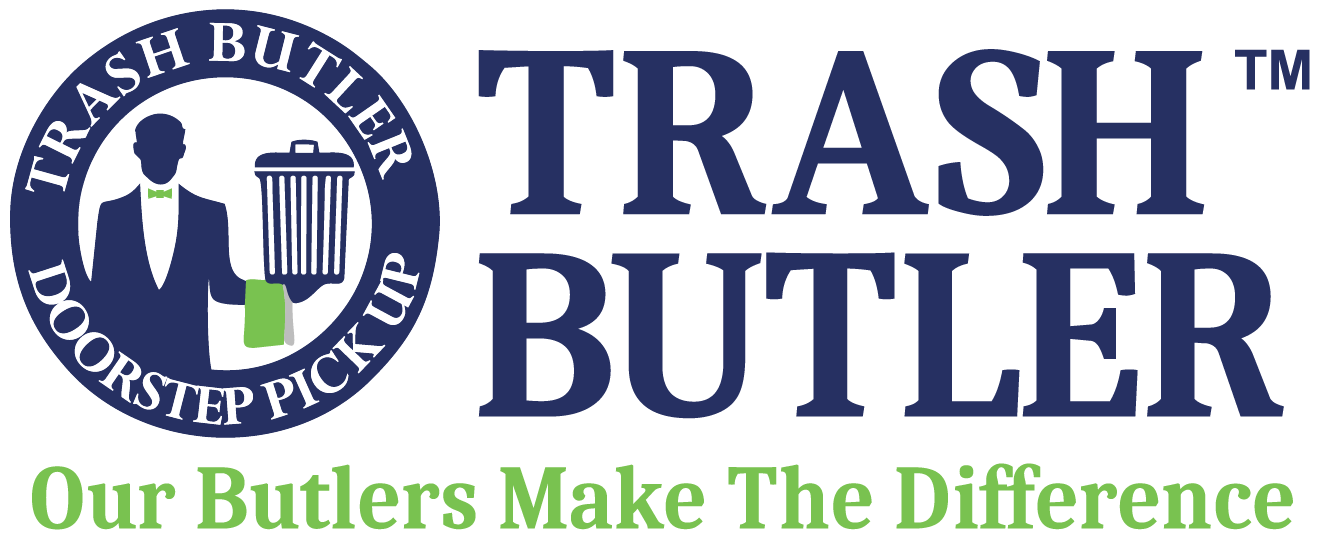Key Takeaways:
- Endless Recyclability And Environmental Benefits: Glass stands out as a material that can be recycled indefinitely without losing its quality or purity. Recycling glass conserves natural resources, reduces energy consumption, cuts down on landfill waste, and diminishes pollution.
- Challenges And Innovations In Glass Recycling: While glass recycling faces challenges, including contamination, logistical complexities, and fluctuating market demands, innovations in technology and recycling practices are addressing these issues.
- Community Involvement And Correct Recycling Practices: Effective glass recycling relies not only on technological advancements but also on individual and community participation. By learning local recycling guidelines, preparing glass properly for recycling, and engaging in community recycling programs, individuals can significantly contribute to the recycling effort.
Glass is a commonly used material in our everyday lives, from bottles and jars to windows and cookware. However, there are some important factors and considerations to keep in mind when it comes to effectively recycling your glass. Whether you’re looking to reduce your environmental footprint or are simply curious about the recyclability of glass, Trash Butler can provide you with the information you need to know about this versatile and eco-friendly material.
Not all types of glass are recyclable. Containers like bottles and jars are ideal for recycling, while other items like drinking glasses and light bulbs may have different compositions that make them unsuitable for the recycling process.
Types Of Glass And Recyclability
Glass comes in various forms, and not all types are equally recyclable. Here are some common types of glass and their recyclability:
Clear Glass
Clear glass, such as that used in bottles and jars for food and beverages, is highly recyclable. In fact, clear glass is one of the most commonly recycled materials due to its purity and ease of repurposing.
Colored Glass
Colored glass, like green, brown, or blue glass, is also recyclable. However, the recycling process for colored glass can be more complex than for clear glass because the colors need to be separated before you recycle them.
Tempered Glass
Tempered glass, often found in windows, car windshields, and glass doors, is recyclable, but the process is more challenging due to the tempering process that strengthens the glass. However, specialized recycling facilities can handle tempered glass effectively.
Pyrex And Borosilicate Glass
Heat-resistant glass varieties like Pyrex and borosilicate glass have a higher melting point, which can make recycling them more energy-intensive. While these types of glass can be recycled, they may need to be separated from other glass types for processing.
Ceramic Glass
Glass combined with ceramics, like some cookware and glass dishes, is not typically recyclable with regular glass due to its unique composition. However, some specialized recycling programs may accept ceramic glass for repurposing.
Understanding the types of glass you’re disposing of can help you make informed decisions about recycling.
Diving Into The Recycling Process
Collection
When it comes to recycling glass, the process involves several important steps to ensure that it can be effectively recycled and turned into new products. The first step in glass recycling is collection. Glass containers are typically collected from homes, businesses, and recycling centers to prevent contamination.
Sorting
It’s important to separate glass from other recyclables to prevent contamination. Once collected, the glass is transported to a recycling facility where it is sorted based on color. It is sorted based on color to maintain the integrity of the new glass products. After sorting, the glass is cleaned to remove any impurities. These include labels, caps, and food residue.
Crushing
Next, the glass is crushed into small pieces called cullet. This cullet is then melted in a furnace at high temperatures to form molten glass. The molten glass can then be molded and shaped into new products such as bottles, jars, and fiberglass. What’s great about glass recycling is that it’s a closed-loop system, meaning glass can be recycled endlessly without losing quality.
Benefits Of Glass Recycling
Reducing Landfill Waste
Glass recycling offers a multitude of benefits for both the environment and society as a whole. One of the primary advantages of recycling glass is its impact on reducing waste in landfills. Glass recycling helps in reducing waste in landfills by creating new glass products from recycled materials.
Glass is not biodegradable and can take thousands of years to decompose in a landfill. By recycling glass, we can divert tons of glass waste from ending up in landfills, reducing the strain on landfill capacities.
Conservation Of Resources
When glass is recycled, it can be used to create new glass products, reducing the need for raw materials and lowering energy consumption in the manufacturing process. This not only conserves natural resources but also decreases the carbon footprint associated with glass production. Glass is made from sand, soda ash, and limestone, all of which are finite resources. Recycling glass helps in conserving these resources for future generations.
Sustainability And Recyclability
Moreover, glass is 100% recyclable. This means it can be recycled endlessly without losing quality or purity. This makes glass a highly sustainable material compared to other packaging options like plastic.
Energy Conservation
For every ton of glass recycled, over 700 pounds of carbon dioxide is prevented from being released into the atmosphere. This reduction in greenhouse gas emissions plays a significant role. It helps in effectively combating climate change.
Economic Benefits
Additionally, glass recycling contributes to the economy by creating jobs in collection, sorting, and processing facilities. The recycling industry provides employment opportunities and supports local economies. By recycling glass, communities can promote a more circular economy, where materials are reused and repurposed rather than disposed of as waste.
Environmental Responsibility
Glass recycling fosters a culture of environmental responsibility, encouraging individuals and businesses to contribute to sustainability and conservation. From a social perspective, glass recycling helps in fostering a culture of environmental responsibility. When individuals and businesses engage in recycling practices, they demonstrate a commitment to sustainability and conservation. This can influence others to follow suit and create a ripple effect of positive environmental action throughout society.
How Glass Recycling Compares To Other Materials
The process of recycling glass is less energy-intensive compared to other materials like plastic or aluminum. Glass recycling requires less heat. This means fewer greenhouse gas emissions are produced.
Compared to paper, glass recycling also has its advantages. While both materials can be recycled, glass tends to be more durable and can be recycled endlessly. Paper recycling, on the other hand, often results in a downcycling process where the quality of the material decreases with each recycling cycle, eventually leading to the material being unusable.
While all recyclable materials play a role in reducing waste and conserving resources, glass recycling shines as a particularly efficient and sustainable option worth considering for individuals and businesses alike.
Tips For Efficient Glass Recycling At Home
Here are some tips to make glass recycling at home easier and more efficient:
Separate Glass
Always separate glass from other recyclables like paper, plastic, and metal. This prevents contamination. It ensures that glass can be recycled effectively.
Rinse Properly
Before recycling glass jars and bottles, make sure to rinse them thoroughly. This removes any food residue or liquids. This step is crucial to prevent contamination during the recycling process.
Remove Caps And Lids
Be sure to remove any caps, lids, or corks from glass containers before recycling them. These items are often made of different materials. They can cause issues in the recycling process.
Avoid Breaking Glass
While glass is recyclable, broken glass poses a safety hazard to recycling workers. Try to avoid breaking glass items. This will keep the recycling process safe for everyone involved.
Use Recycling Bins
Invest in separate bins for different types of recyclables, including one specifically for glass. Label each bin clearly. This will ensure that family members or housemates understand how to properly sort their waste.
By following these tips, you can contribute to a more efficient and successful glass recycling process at home. Remember, every small effort counts towards a greener, more sustainable future.
Final Thoughts
Glass is ultimately one of the most recyclable materials available to us, and it is essential to take advantage of this eco-friendly option whenever possible. It is crucial for individuals, businesses, and communities to prioritize glass recycling as a sustainable solution to waste management.
Its endless reusability not only helps in reducing the strain on the environment but also promotes a circular economy where resources are utilized more efficiently. By incorporating glass recycling into our daily lives, we can make a significant impact on reducing waste and protecting the planet for future generations.
Remember, every glass bottle or jar that you recycle ultimately plays a part in conserving resources and reducing landfill waste. Whether you are recycling glass containers at home or supporting businesses that prioritize recycling practices, your efforts contribute to a cleaner, greener, and more sustainable world. Let’s all do our part in keeping glass recyclable and making a positive difference in the world. Request a quote today!
Frequently Asked Questions
Is glass recyclable?
Yes, glass is highly recyclable. Most glass can be recycled numerous times without losing its purity or quality.
Why is glass recycling important?
Recycling glass is important because it conserves raw materials, reduces energy consumption, and diminishes greenhouse gas emissions compared to new glass production, contributing significantly to environmental conservation.
What types of glass can be recycled?
Most common types of glass, such as bottles and jars, can be recycled. However, the recyclability may depend on the recycling program’s specific guidelines in your area.
Can colored glass be recycled?
Yes, colored glass is recyclable. It is typically sorted by color at recycling facilities because different glass colors are used to make new colored glass containers.
Why can’t all glass items be recycled?
Some glass items, like Pyrex, ceramics, mirrors, and light bulbs, have different melting points and compositions, making them unsuitable for recycling with container glass. These materials can cause defects in new glass products.
How is glass recycled?
The glass recycling process typically involves collecting, sorting by color, crushing into cullet, and then melting it down to form new glass products. The cullet is mixed with raw materials to reduce the energy needed to reach the melting point.
What products are made from recycled glass?
Recycled glass can be used to make new glass bottles and jars, fiberglass insulation, glassphalt for roadways, and decorative items, among other products.
Is recycled glass as good as new?
Yes, glass recycled correctly maintains its purity and quality, making the recycled material as good as new for creating new glass products.
How can I tell if glass is recyclable?
Check your local recycling program’s guidelines, as they can vary. Generally, food and beverage glass containers are recyclable. Avoid assuming if glass has other materials attached or if it’s a non-container glass item.
Does glass recycling save energy?
Yes, recycling glass saves energy. Producing new products from recycled glass requires significantly less energy than starting from raw materials, primarily because the cullet melts at a much lower temperature.





